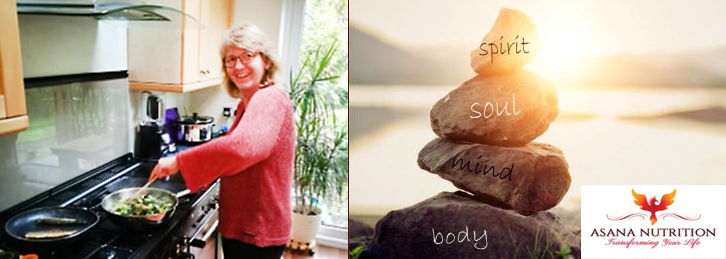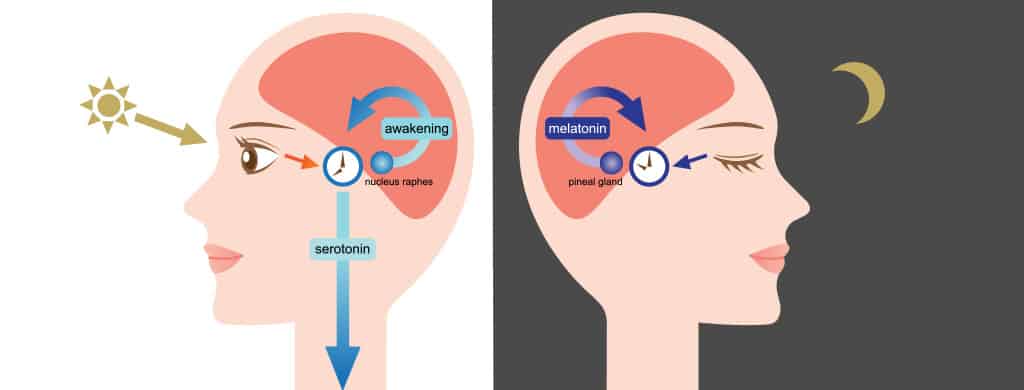
Breaking the Insomnia Cycle with Sabine Horner
WHY GRIEF TURNS US INTO INSOMNIACS AND HOW WE CAN BREAK THIS CYCLE
A good night’s sleep is crucial for our health. But somehow, sleep doesn’t come easy when we are bereaved. Despite a severe lack of energy, many of us turn into night owls – staying up late and dragging ourselves out of bed the next morning. And if we do manage to go to bed early, many find it difficult to fall asleep or stay asleep long enough to start the next day rested and refreshed.
Needless to say, disrupted sleep doesn’t help when trying to cope with the emotional ups and downs of grieving. Besides making us feel tired, irritable and grumpy all day, it can cause serious health issues when problems persist. For example, the brain can only clear out harmful toxins and waste products while we sleep.
To find a solution for sleep disturbances, it is important to know why we become insomniacs in the first place. Our body experiences grief as intense emotional stress and this – like any other stressor – triggers the release of cortisol, the body’s primary stress hormone. Cortisol drives our body’s fight-or-flight response which can severely disrupt our sleep-wake cycle when cortisol levels remain high for an extended period, such as in grief.

When we are chronically stressed, our circadian cortisol rhythm is reversed and, instead of peaking in the morning, cortisol spikes at night. This explains why we often have trouble falling asleep. Also, high evening cortisol levels can make our blood sugar levels drop during the night, causing nightmares and other sleep disruptions. Drinking alcohol or having a high-carb or sugary snack before bed can have the same effect.
Because grieving is exhausting, we may also be drinking a lot more coffee to keep us going throughout the day. A strategy that I adopted as well but have recently been able to give up, simply by not buying any more coffee and only having it as a ‘treat’ when going out (before lock-down, of course!). Caffeine should best be avoided since it increases stress and anxiety which can make it difficult for us to relax enough to have a restful sleep.
Lack of sleep by itself can also increase our risk of developing anxiety or depression. As can nutrient deficiencies such as lack of vitamin D, certain B vitamins, omega-3, magnesium or tryptophan.
The body uses tryptophan to make serotonin, the ‘happy hormone’, which is turned into melatonin, the ‘sleep hormone’, later in the evening. Serotonin, together with cortisol, gets us going in the morning and overcome the lethargy that would otherwise keep us in bed.
Serotonin levels increase in sunshine which is not surprising as serotonin is activated by vitamin D3, the ‘sunshine hormone’. Unfortunately, there are many factors which can interfere with our body’s ability to convert vitamin D from sunlight into its active form, causing widespread vitamin D deficiency without proper supplementation. Lack of vitamin D not only impacts the quality of our sleep; it can also result in fewer hours of restorative sleep.

Melatonin is boosted by darkness and protects us from infections while we sleep. This is why poor sleep suppresses our immune system. Unfortunately, most of us don’t produce enough melatonin at night because the blue light emitted by electronic devices and energy-efficient lightbulbs blocks the release of this natural sleep-inducing chemical.
Apart from all these physical factors affecting our sleep, there may also be psychological reasons why we may delay going to bed as long as possible. If we have lost our partner, we may be dreading the prospect of going to bed on our own. We may also suffer from disturbing thoughts about our loved one or be experiencing stressful secondary losses, such as the loss of income, which can keep us up at night.
All this makes it clear that there is no ‘one size fits all’ remedy for insomnia after a major loss. However, awareness is the first step towards change. Therefore, it is important to sit down and reflect on our current daily habits to identify those that may play a major role in disrupting our sleep.
The following recommendations may help you with this. Go through them to check where you could make improvements to your eating and lifestyle patterns. Start with the ones you find easiest to implement and build from there.
1. Reduce stress as much as you can
- Breathe only through your left nostril before and after a meal
This will calm you down and ensure good blood flow to your digestive system which we need for good digestion and absorption of nutrients.
- Put your hands (or a hot water bottle) on your navel when lying in bed feeling anxious or upset.
This will comfort and ground you and calm your nervous system (after all, one-third of your nervous system is in your gut).
- Or: Make sure your exhale is longer than your inhale to help you go back to sleep.
This will trick your body into thinking that you are not facing any danger or threat.
2. Eat a well-balanced diet which includes a wide variety of vegetables, protein and beneficial oils
This will help to:
- keep your blood sugar levels stable – for better mood, focus and energy throughout the day and no drop in blood sugar during the night
- keep you fuller for longer which prevents snacking
- provide you with vital minerals and vitamins needed to produce serotonin/melatonin
- increase your intake of omega-3 when you consume more flaxseed oil and oily fish

3. Establish a regular daily routine
- Eat at the same time each day (for example 8 am, 12 noon, 6pm)
- Leave 3 hours between dinner and bedtime
- Eat a light, easy-to-digest meal in the evening (avoid red meat, wheat or dairy)
- Avoid snacking, coffee or alcohol late at night
- Go outside for at least 15 minutes each day:
Expose your eyes to natural daylight in the morning to help reset your sleep/wake cycle
- Exercise daily but don’t overdo it (brisk walks are ideal)
4. Establish a new night ritual
- Engage in some relaxing activity after 8pm:
Reading, drawing, grief journaling, gentle stretching or yoga, (breath or mantra) meditation etc.
- Turn off all electronic devices after 8pm and keep them out of your bedroom
- Drink some liquorice, camomile or other calming herbal tea before bed
- Make going to bed a pleasant experience:
Play some nice, soothing music, have an Epsom salt (foot) bath, use essential oils etc.
- Sleep in a cold and completely dark room
- Make sure you are warm though: put on socks or put a hot water bottle on your tummy
- Make or buy a gravity blanket
- Lights out by 10 pm
5. Have your vitamin D levels checked by your GP
Sometimes, just correcting your vitamin D levels may significantly reduce your anxiety levels and help you to get that elusive good nights’ sleep.
Apart from checking that your vitamin D levels are around 100 nmol/L, it does not matter much which of the recommendations you implement first. The important thing is that you start taking tiny steps in the right direction. You may have evenings when you fall back into your old behaviour pattern. Don’t feel bad about it. It takes time to change habits. Do the best you can every day and seek support if you find that you cannot do it on your own.
Your sleep is important to your healing – in body, mind and spirit!
All text and images © Sabine Horner 2020
Connect with Sabine in any of the following ways:
By phone 07539347643
Email info@asananutrition.co.uk
Follow her on Linked-In: https://www.linkedin.com/company/asana-nutrition/
Find her on Facebook: https://www.facebook.com/AsanaNutritionUK/
Be inspired on Instagram: https://www.instagram.com/sabine.horner/
Cook along: https://www.youtube.com/channel/UCCiLP_F0BdoTJ5Of5KLOFJQ
